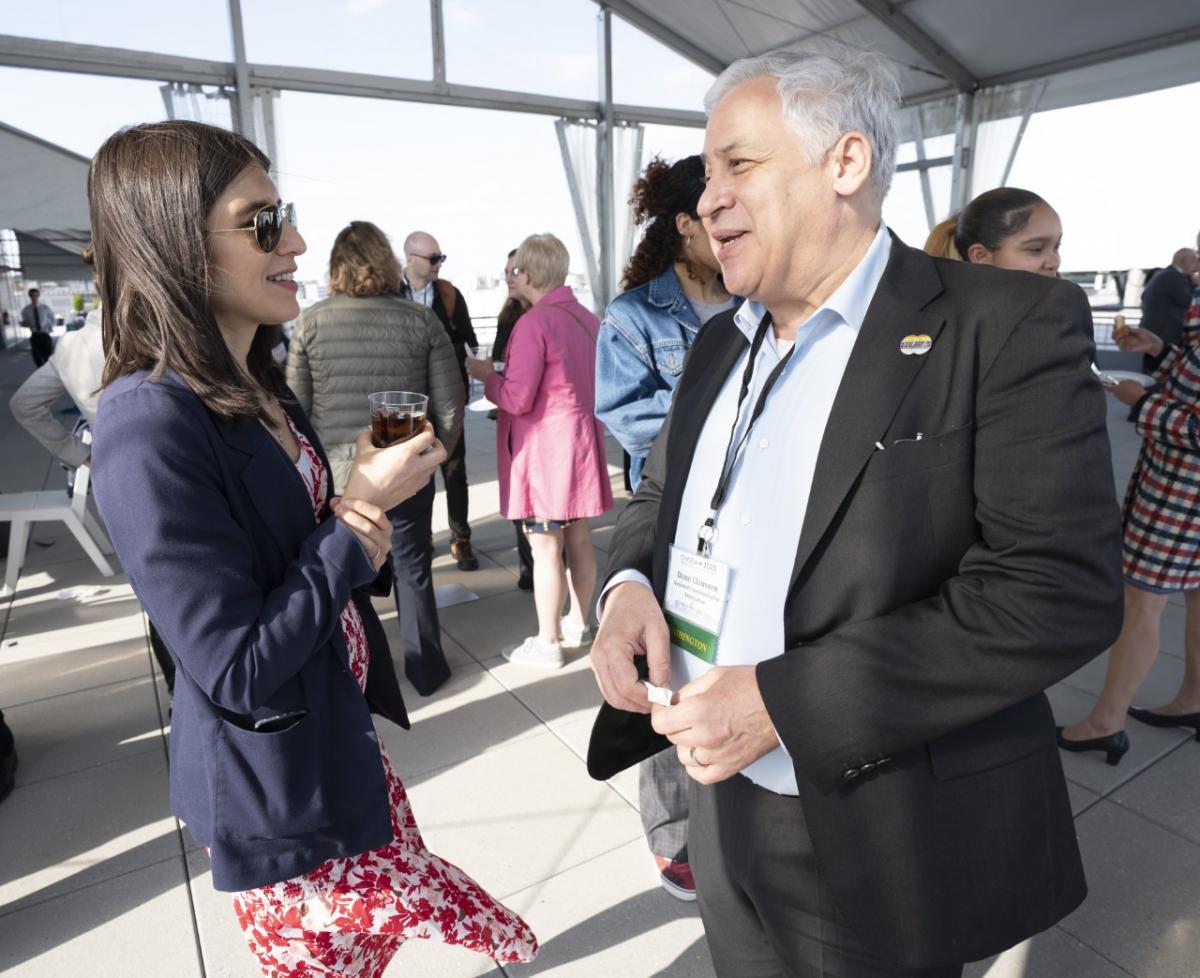
Advocates from across the nation gather for training on day one of COSSA’s 2023 Advocacy Day. Credit: Mark Finkenstaedt
About 55 people representing their universities or disciplinary associations descended on Capitol Hill in Washington on April 25 to make the case to members of Congress to preserve and even increase federal funding for social science research.
The occasion was Social Science Advocacy Day, an annual event hosted by the Consortium of Social Science Associations (COSSA), of which the NCA is a sponsoring organization and board member. On Advocacy Day, as far as I know, only two other participants and I were participants with a Communication background.

Dane Claussen (right), NCA's director of research, lobbied and learned during COSSA’s recent Advocacy Day. Credit: Mark Finkenstaedt
The National Science Foundation (NSF) may be most identified with federally funded social science research. But even President Biden’s pro-research budget proposes only $360.6 million for the Social, Behavioral and Economic Sciences Directorate of NSF, or only about 15% of the NSF’s total budget. One attendee estimated that only about 1% of all federal funding for research goes to social and behavioral sciences.
As such, one communication strategy offered was to emphasize the small percentage of federal research funding that goes to social science and that the United States (and the world) gets a lot of “bang for its buck” for that funding. This, obviously, was an easy argument to make.
Another strategy, the coin of the realm these days in lobbying and public relations, was to tell relevant and important stories about social science research’s positive impacts in the United States and elsewhere. I was randomly assigned to the Washington state congressional delegation, and our team leader is a University of Washington public policy professor and state legislative lobbyist for his institution. Our leader described, for instance, a study he led for Seattle’s city government about increasing Washington state’s minimum wage, and we mentioned other Seattle and national social issues that social science can assist on such as drug addiction and homelessness. For instance, I was able to specifically mention several studies about homelessness that have been published in our NCA journals.
We met with staff members for Sens. Patty Murray (D-WA) and Maria Cantwell (D-WA), and Congresswoman Pramila Jayapal (D-Seattle), who were receptive, listening intently, taking notes, and asking a few questions. I hope that other Advocacy Day participants had similar experiences.
What is less known about federal funding of social science research than the NSF is how many other U.S. government agencies fund at least some social science research effort: the departments of Agriculture, Commerce, Defense, Education, Energy, Health and Human Services, Homeland Security, Housing and Urban Development, Justice, Labor, State, and Transportation, plus the National Archives and Records Administration, Woodrow Wilson International Center for Scholars, U.S. Institute of Peace, and the National Endowment for the Humanities. Much of the social scientific research funded by Cabinet-level agencies is centered around data collection and analysis, but much less so in departments such as Education, Health and Human Services, and Housing and Urban Development.
COSSA prepared excellent materials about the federal budget and how to lobby (in person, by mail, and more). COSSA’s members are a who’s who of major universities and social scientific organizations, such as the American Political Science Association, American Sociological
Association, American Anthropological Association, American Evaluation Association, Population Association of America, Association of American Universities, and many others. The NCA is one of COSSA’s Governing Associations, which means it has a seat on COSSA’s board of directors. I hope that next year, COSSA Advocacy Day can involve more than 55 advocates from across the disciplines and across the country—and especially more NCA members.
Dane S. Claussen, Ph.D., MBA, NCA’s Director of Research, Publications, and Professional Advancement

